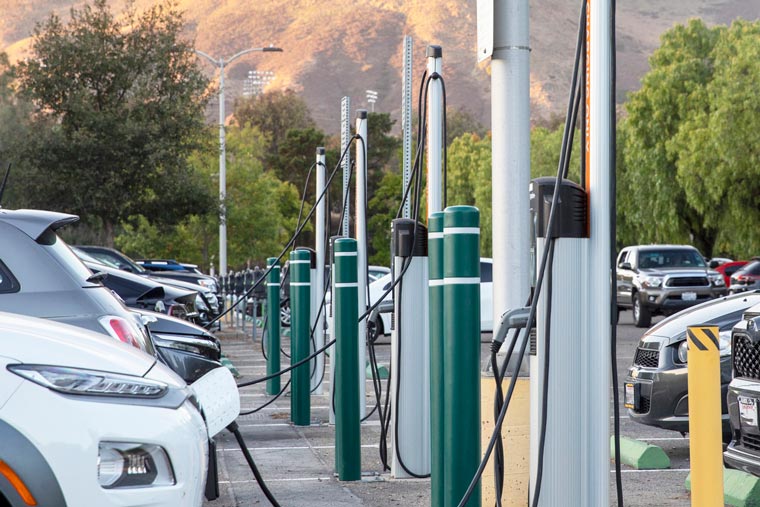WASHINGTON — President Donald Trump signed an executive order on Monday, January 20th, rescinding the “electric vehicle mandate” imposed under former President Joe Biden.
Trump’s order, entitled “Unleashing American Energy,” called “(e) to eliminate the ‘electric vehicle (EV) mandate’ and promote true consumer choice, which is essential for economic growth and innovation, by removing regulatory barriers to motor vehicle access; by ensuring a level regulatory playing field for consumer choice in vehicles; by terminating, where appropriate, state emissions waivers that function to limit sales of gasoline-powered automobiles; and by considering the elimination of unfair subsidies and other ill-conceived government-imposed market distortions that favor EVs over other technologies and effectively mandate their purchase by individuals, private businesses, and government entities alike by rendering other types of vehicles unaffordable.”
The order revokes a Biden mandate that electric vehicles make up half of new cars sold by 2030. The order also seeks to terminate a federal exemption that allows California to phase out the sale of gas-powered cars by 2035. That rule had also been adopted by 11 other states.
According to the Associated Press, language in the order and others issued by Trump on Monday indicate he is likely to seek to repeal a $7,500 tax credit for new EV purchases approved by Congress as part of Biden’s 2022 climate law, as well as roll back Biden-era Environmental Protection Agency rules applying to greenhouse gas emissions and other pollution from passenger and commercial vehicles.
Regarding EV chargers and charging stations, Reuters said that Trump was halting the distribution of unspent government funds for vehicle charging stations from a $5 billion fund, and called for ending a waiver for states to adopt zero emission vehicle rules by 2035 and also said his administration would consider ending EV tax credits.
Biden had set a goal of creating 500,000 such chargers by 2030. As of late last year, there were 214 operational chargers in 12 states that have been funded through federal laws, with 24,800 projects underway across the country, according to the Federal Highway Administration. A total of more than 203,000 publicly available charging ports are operating across the U.S., with nearly 1,000 being turned on every week, according to the agency. This is more than double the number available in 2021.
Though the pace of EV sales growth in the U.S. slowed last year, EVs accounted for 8.1% of new vehicle sales, up from 7.9% the year before, according to Motorintelligence.com.
The cost of EVs has slowly come down as the auto industry scales manufacturing of the vehicles and expensive battery prices improve, but they still cost more upfront than traditional gasoline-powered cars. And while automakers will likely welcome efforts to loosen emissions standards, the elimination of federal subsidies could make it harder to sell EVs, which they’ve spent billions of dollars developing over the past several years.
Even before Monday’s order, some automakers have pulled back ambitious plans to go electric. Ford nixed plans for electric three-row SUVs in lieu of making them gas-electric hybrids; General Motors delayed production at an EV battery cell plant.
Tagged with EV






